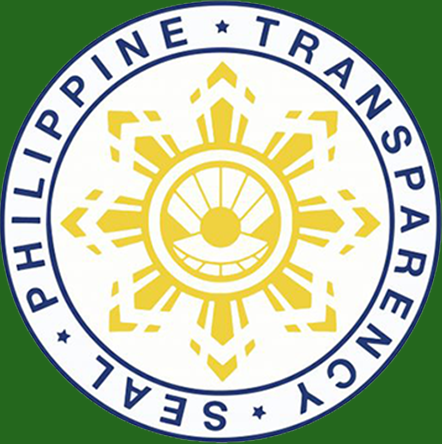The J.D. program entails a study of general principles and basic theories of law as an intellectual discipline, as well as a systematic and analytical examination of the specific codes and statutory enactments in force in the Philippines, together with interpretative court decisions and other pertinent materials. Closely studied are the civil law basis of most private laws of the country and the common law concept embodied in the public laws and derived particularly from Anglo-American jurisprudence. Consequently, the materials of study are textbooks, statutes, cases, and other authoritative works on law and jurisprudence.
Legal education plays an important role in maintaining a just and humane society. For without it, the perpetuation of the highest forms of injustice and inequality would remain with impunity. Hence, the indispensable role of legal institutions and legal educators in interpreting and sharing the spirit and the letter of our laws.
Legal education in the Philippines is geared to attain the following objectives:
- to prepare students for the practice of law;
- to increase awareness among members of the legal profession of the needs of the poor, deprived and oppressed sectors of society;
- to train persons for leadership; and
- to contribute towards the promotion and advancement of justice and the improvement of its administration, the legal system and legal institutions in the light of the historical and contemporary development of law in the Philippines and in other countries.
Further, the continuing changes in the legal landscape demands the outmost enthusiasm of law educators, as well as law students, in unceasingly learning and re-learning the laws of our land.
The Kalinga State University (KSU) having been granted the authority to offer a law program embarks with the journey of all other legal educational institutions in molding a just and humane society by producing law advocates knowledgeable in their own chosen law discipline. The KSU College of Law, under the supervision of the Legal Education Legal Education Board (LEB), serves as a vehicle in achieving said purpose. It is well equipped with an adjusted curriculum, the Revised Model Law Curriculum (RMLC), more acclimated in preparing law students to the practice of law, to inculcate in them the ethics and responsibilities of the legal profession; and a rooster of enthusiastic and well-trained law professionals as its instructors.
Vision
To be a leading Center of Excellence in Legal Education and a steadfast provider of accessible legal services, empowering the oppressed and underprivileged through justice, knowledge, and advocacy.
Mission
The Juris Doctor Program at Kalinga State University is dedicated to shaping competent and compassionate lawyers through advanced legal education, rigorous professional training, and impactful community legal outreach.
Program Objective
The College of Law seeks to pursue the following objectives:
- Produce lawyers who are capable of unparalleled brilliance, professionally competent, practice-ready, active, self-directed and lifelong learners, responsible, highly ethical, honorable, socially mindful and gender sensitive; willing leaders and servants; and, thinkers and innovators in law;
- Make formal legal education accessible to everyone willing to learn the law;
- Extend legal services to communities and clients without preference through the Legal Aid Office and Legal Aid Community Services;
- Serve as a pillar for advocating justice and truth;
- Provide an avenue for lawyers to share their legal knowledge and to enhance their own understanding of the laws; and
- Establish Kalinga State University as one of the premier legal education institutions nationwide.
Program Educational Outcomes
After 3-5 years, the graduates of the Juris Doctor Program shall:
- Demonstrate comprehensive knowledge of the law and apply it effectively in various legal contexts to promote justice, fairness, and equality.
- Exhibit professional competence in legal practice, including legal research, writing, advocacy, and case analysis.
- Uphold the rule of law and the ethical standards of the legal profession with integrity, responsibility, and accountability.
- Advocate for civil liberties and human rights, contributing to the development of a just and humane society.
- Show awareness of the legal profession’s social responsibility by actively engaging in community legal education and outreach programs.
- Demonstrate leadership and public service commitment responsive to the needs and aspirations of the Filipino people.
- Promote and protect human dignity and freedom through principled participation in nation-building and societal transformation.
Program Objectives Juris Doctor
- Disseminate legal knowledge and advocate for justice rooted in fairness, equity, and inclusivity.
- Equip students for the legal profession by cultivating a deep respect for the rule of law and unwavering ethical integrity.
- Instill in students a strong sense of social responsibility, emphasizing the legal profession’s role in protecting civil liberties and fostering a humane society.
- Nurture principled leaders who embody the values, vision, and aspirations of the Filipino people.
- Engage in nation-building by promoting a society that champions human dignity, individual rights, and collective freedom.
OBE FRAMEWORK
PROGRAM CURRICULUM
NEW CURRICULUM
COLLEGE OF LAW
LEB MEMORANDUM No. 24 Series of 2021
| CURRICULUM SCHEDULE | |||||||||||||
| FIRST TERM | YEAR 1 | SECOND TERM | |||||||||||
| COURSE | UNIT | PREREQUISITE | COURSE | UNIT | PREREQUISITE | ||||||||
| Persons and Family Relations | 4 | None | Obligations and Contracts | 5 | None | ||||||||
| Constitutional Law I | 3 | None | Constitutional Law II | 3 | Constitutional Law I | ||||||||
| Criminal Law I | 3 | None | Criminal Law II | 4 | Criminal Law I | ||||||||
| Philosophy of Law | 2 | None | Conflict of Laws | 2 | None | ||||||||
| Statutory Construction | 2 | None | Alternative Dispute Resolution | 2 | None | ||||||||
| Basic Legal Ethics | 3 | None | Legal Writing and Research | 2 | None | ||||||||
| Subtotal | 17 | Subtotal | 18 | ||||||||||
| FIRST TERM | YEAR 2 | SECOND TERM | |||||||||||
| COURSE | UNIT | PREREQUISITE | COURSE | UNIT | PREREQUISITE | ||||||||
| Property and Land Law | 4 | None | Civil Procedure II | 3 | Civil Procedure I | ||||||||
| Sales | 2 | None | Commercial Law I | 3 | Obligations and Contracts,Corporation and Basic Securities Law | ||||||||
| Criminal Procedure | 3 | None | Basic Succession Law | 2 | Persons and Family Law | ||||||||
| Civil Procedure I | 3 | None | Labor Law and Social Legislation | 4 | Constitutional Law II | ||||||||
| Land Title and Deeds | 2 | None | Administrative Law and Laws on Public Officers | 2 | Constitutional Law I | ||||||||
| Corporation and Basic Securities Law | 3 | Obligations and Contracts | Public International Law | 3 | Constitutional Law I | ||||||||
| Subtotal | 17 | Subtotal | 17 | ||||||||||
| FIRST TERM | YEAR 3 | SECOND TERM | |||||||||||
| COURSE | UNIT | PREREQUISITE | COURSE | UNIT | PREREQUISITE | ||||||||
| Commercial Law II | 4 | Obligations and Contracts,Corporation and Basic Securities Law | Evidence | 4 | Criminal Procedure,Civil Procedure I and II | ||||||||
| Agency, Trust and Partnership | 3 | Obligations and Contracts | Election Laws | 2 | Constitutional Law I | ||||||||
| Private International Law | 2 | Persons and Family Law,Obligations and Contracts, Property and Land Law, Agency, Trust and Partnership Law,Corporation and Basic Securities Law, Labor Law and Social Legislation, Basic Succession LawCommercial Law I | Basic Taxation Law | 3 | Constitutional Law 1 | ||||||||
| Special Rules and Proceedings | 2 | Basic Succession Law | Natural Resources and Environmental Law | 2 | None | ||||||||
| Medical Jurisprudence | 1 | Criminal Law II | |||||||||||
| Laws on Local Government | 2 | Constitutional Law I | Gender Sensitivity, and Laws on Women and Children’s Rights | 2 | None | ||||||||
| Torts and Damages | 2 | Obligations and Contracts | Problem Areas in Legal Ethics | 2 | Basic Legal Ethics | ||||||||
| Legal Forms | 2 | None | Clinical Legal Education | 2 | None (All first year subjects) | ||||||||
| Subtotal | 19 | Subtotal | 17 | ||||||||||
| FIRST TERM | YEAR 4 | SECOND TERM | |||||||||||
| COURSE | UNIT | PREREQUISITE | COURSE | UNIT | PREREQUISITE | ||||||||
| Political and International Law Review | 6 | Constitutional Law I,Constitutional Law II,Administrative Law and Laws on Public Officers,Election Law,Public International Law, Laws on Local Government | Commercial Law Review and Integration | 6 | Agency, Trust and Partnership Law,Corporation and Basic Securities Law, Commercial Laws I, Commercial Law II | ||||||||
| Labor Law Review | 3 | Labor Law and Social Legislation | Remedial Law Review and Integration | 7 | Criminal Procedure,Civil Procedure I and II, Evidence, Special Rules and Proceedings | ||||||||
| Civil Law Review and Integration | 6 | Persons and Family Relations, Obligations and Contracts,Sales,Property and Land Law, Basic Succession Law, Torts and Damages, Private International Law | Taxation Law Review and Integration | 3 | Basic Taxation Law | ||||||||
| Criminal Law Review Integration | 4 | Criminal Law ICriminal Law II | Legal and Judicial Ethics and Practical Exercises | 2 | Basic Legal Ethics,Legal Research and Writing,Legal Forms | ||||||||
| Subtotal | 19 | Subtotal | 18 | ||||||||||



